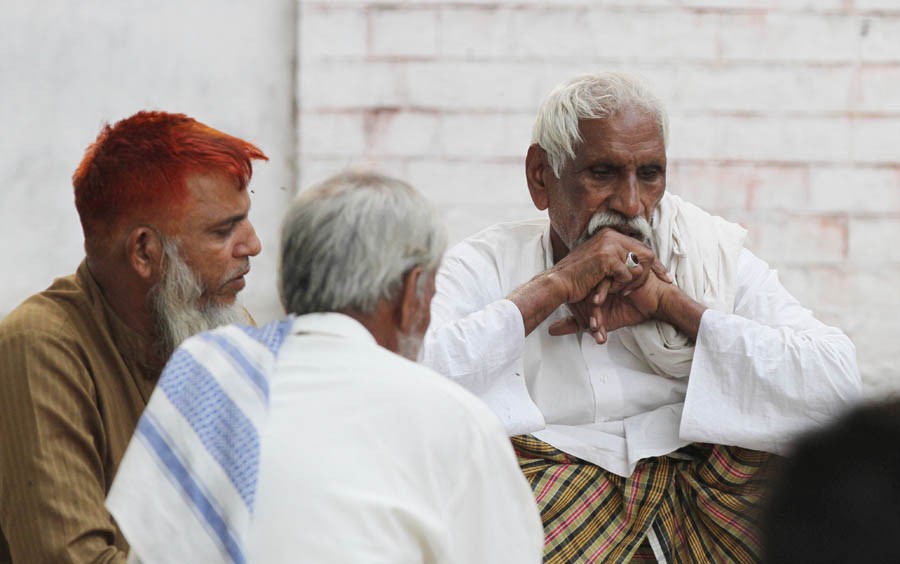
Social participation of the elderly is an important but complex question that varies from one setting to the other, from one social class to the other

It is rather easy to prescribe solutions for more social inclusion for old people. The first Google search leads you to a link that suggests not less than 110 activities that the elderly can and must undertake. You turn attention to your own folks to realise how unable they are to benefit from any of these 110 suggestions. For them, most of these are undoable. And the few that are possible, like meeting the relatives, they can’t do on their own.
So, easier said than done. Because there are old people and then there are old people.
If you start counting the official retirement age, 60, as the beginning of seniority, old age may last anywhere from ten to thirty years. This is a huge span, beginning with the onset of old age to extreme poor health.
Social participation of the elderly is an important but complex question. It varies from one setting to the other, from one social class to the other and so on. In every setting, however, age discrimination is constant.
In poor neighbourhoods, one often sees a string cot lying outside homes where one or more oldies sit and look around vacantly. As you move up the socioeconomic ladder, they start becoming less visible. One can imagine them as confined to beds or hooked on to their often loud television sets. In elite clubs during late morning, seniors mostly males come to socialise because, well, they have the means to do so.
This class variable sometimes works in opposite ways. The lower the economic status, the more sociable old people are likely to be; because they depend on others beyond family for their various needs. They create a social network of their own, only because it is necessary. Sometimes, you get to see a camaraderie around a hookah that is so heart-warming you want to forget everything else.
Yet, by and large, old age is marked with solitude that often borders on loneliness. Old people are kept away from social lives, owing to certain objective factors, societal attitudes and sometimes their own decisions. I wonder if we realise how many of our parents are actually uprooted from their village, city or even country. And that doesn’t make things much easier.
Read also: Editorial
For people who do active paid jobs, the time of retirement is depressing, giving them a sense that they are of no use anymore. Those who keep working till they can certainly face less isolation. But lack of work, retirement, poor health/disability, death of a partner, low activity, loss of social contacts and lack of appropriate transport are some key factors that impact the social involvement of the elderly.
There is a string of regrets and guilt among caregivers, leading to the perfect human response -- that such regrets are futile, and life must move on. Yet, the urge to get old people out of homes and assimilate more in society continues. As their health weakens and mobility is affected, it requires more resources and time to make this happen.
The culture that one is a part of is important. Here, individuals do not think they would ever get to the other side of numbers. Most people live in a state of denial, and whatever little thinking ahead they do is in relation to their children. I’ve heard my friends speak about their children as if they’d bought an insurance policy to help them when they turn old.
Yet, even in this expectation of dependency, parents remain masters of their own decisions for as long as they can. They would resist holding a stick and, worse still, be seen on a wheelchair. But then comes a time when they can’t. That’s when they give in.
Children often judge parents for being stubborn and think they would have been better off if they didn’t do this or did that. But then these very children who are now getting old themselves reconcile with parents; accept them as they are.
Yes, there are things the society needs to do, that we as society need to do. To start with, this age discrimination must end. Only the strong individuals, those who think hard and have the courage to defy the societal norms, do not let age hinder their lives. For the rest, the society has to step in.
Old people can enjoy life as much and as well as others and, therefore, stereotyping them in an age bracket must stop. The society (we have stopped thinking in terms of state) then has to facilitate their mobility on public transport, public places and government offices. It must help get them to places and facilities where they can hang out and enjoy. There should be programmes designed to put the old people to use their talent and experience, and become re-employed. The younger people, within family and educational institutions, can volunteer with their ‘time’ to be with the elderly.
Time, it seems, is of essence. Children of old parents do not find this time to be with the parents, let alone organise their social inclusion. It would help if the siblings often sit and discuss and plan, and maybe let the parents do things instead of being overly fearful about their well-being. Sending them to do chores would help as much as making the grandchildren spend time with them.
What can the oldies do themselves? It turns out that nothing works better than a wide circle of friends. Make more of them and don’t ever feel old enough to let go of friends. Take pains to sustain these friendships and the social inclusion will automatically happen. Easier done than said.